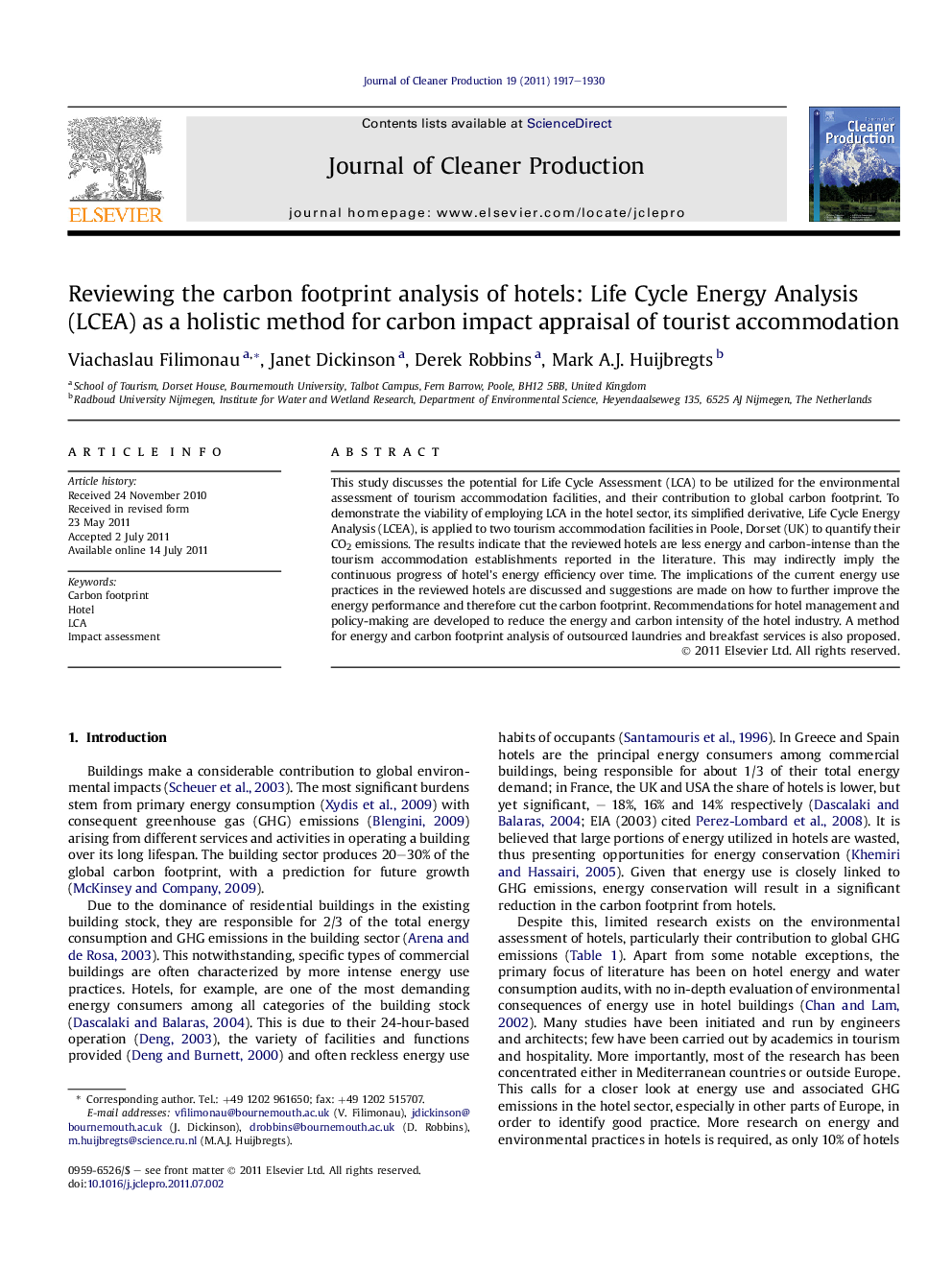| Article ID | Journal | Published Year | Pages | File Type |
|---|---|---|---|---|
| 1745919 | Journal of Cleaner Production | 2011 | 14 Pages |
This study discusses the potential for Life Cycle Assessment (LCA) to be utilized for the environmental assessment of tourism accommodation facilities, and their contribution to global carbon footprint. To demonstrate the viability of employing LCA in the hotel sector, its simplified derivative, Life Cycle Energy Analysis (LCEA), is applied to two tourism accommodation facilities in Poole, Dorset (UK) to quantify their CO2 emissions. The results indicate that the reviewed hotels are less energy and carbon-intense than the tourism accommodation establishments reported in the literature. This may indirectly imply the continuous progress of hotel’s energy efficiency over time. The implications of the current energy use practices in the reviewed hotels are discussed and suggestions are made on how to further improve the energy performance and therefore cut the carbon footprint. Recommendations for hotel management and policy-making are developed to reduce the energy and carbon intensity of the hotel industry. A method for energy and carbon footprint analysis of outsourced laundries and breakfast services is also proposed.
